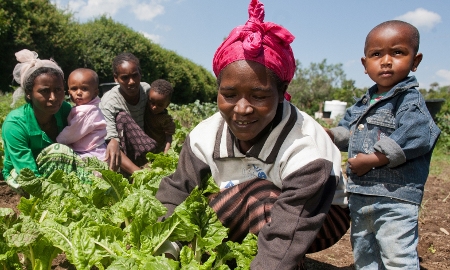With its huge resource base, large population and favour-able climatic conditions, Nigeria’s agriculture sector has huge potential for development and is playing a fundamental role in the country’s push for economic diversification. Akinwunmi Adesina, the Minister of Agriculture, outlines how the government is now acting to make sure this great promise is finally being realised.
Professor Adesina, how would you sum up your vision for the agriculture sector?
Simply put, we have 85 million hectares of land and 263 billion cubic metres of water, we have vast amounts of cheap labour, and we have plenty of sunshine and good weather. Therefore Nigeria has no business importing – in fact we should be a powerhouse of food. So we have launched an agriculture transformation action agenda, which will revolutionise agriculture as a business. We want agriculture to become the main driver of the economy.
Such potential, yet Nigeria remains the largest importer of wheat and rice in the world, spending billions each year on bringing food into the country. As minister, how are you addressing this problem?
My job as minister is straightforward – my job is to make the sector come alive. We are focused on a number of commodities, including rice, cassava, cocoa, cotton, maize, soya beans, livestock and of course, fish, as we have a lot of capacity. With this, we are focused on producing 20 million metric tonnes of additional food and adding that to domestic food supply. However, as our population rises, it is an economic issue. It is expected to increase from 160 million to 450 million by 2050. This means that if I just take rice alone, today we are spending about $3 billion on rice imports, but by 2050 we will be spending $150 billion. So we absolutely must make major changes.
Firstly, it is about taking a full value-chain approach, and not just about producing. Secondly is an investment-focused approach – attracting the private sector into the agriculture and agribusiness sector. Thirdly is ensuring that Nigeria becomes competitive once again in other food markets.
So what positive changes have you made towards implementing this strategy?
Firstly, for over four decades in this country, the government controlled fertiliser and seed, and when I took this job, I found that only 11 per cent of farmers were getting the right fertilisers. We have now sorted that out, and all seed and fertiliser is sold by the private sector directly to the farmers. Secondly, we have put improved agriculture infrastructure in place and we are establishing what we call ‘staple crop processing zones’. These are basically large areas where the government is providing privatisation for power, water and roads, making it easier for the private sector to move in and invest in processing value addition. The third area we are working on is incentivising investment. For example, if you bring agro-processing equipment into Nigeria today, there is no duty, because we want to encourage private investors to get involved. We are attracting private sector investors everywhere to unlock the power of the value chain and add value to everything we are producing here, and it is working.
With things evidently changing for the better, what do you think this means for the future of the sector?
I want investors to know that things are happening in the agriculture space. We are unlocking Nigeria’s potential. Yes, the sector is changing a lot, and I think a more structured sector that is able to attract financing for the private sector will make Nigeria a major player in global food markets.

0 COMMENTS